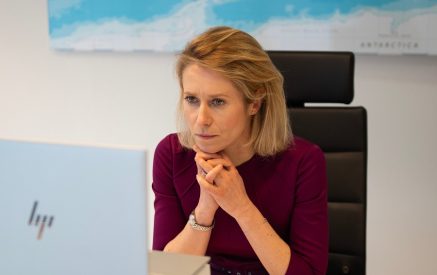The war in Ukraine reminds us of the enduring value of the European Union as a peace project among Europeans and as a strong actor to uphold and promote security on our continent and in the wider world, EU High Representative Josep Borrell said in a statement on Europe Day, celebrated today, 9 May.
Europe Day on 9 May commemorates Robert Schuman’s founding declaration, which launched the European project. This year, the commemoration takes on a particular meaning, with the return of war on a large scale to European territory.
“While for most of our citizens the EU integration process is a huge success story, some of our fellow Europeans have also been swayed by doubts about the usefulness of the European project,” said Borrell. The war in Ukraine reminds us of “the enduring value of the European Union as a peace project” and as a strong actor in the wider world.
Borrell highlighted four points in this regard:
Read also
Member States have demonstrated the strongest political unity in the face of aggression. “We all understood the seriousness of the [Russian] aggression and the dangers it carried. Hence the speed at which the Union adopted financial and economic sanctions against Russia in coordination with G7 partners.”
For the first time ever, the EU used the financial resources of the European Peace Facility to help a state under attack defend itself. Three tranches have already been disbursed for a total of €1.5 billion. This European support is coupled with the direct military support from the Member States. “It is a further proof that far from restricting the Member States, the union multiplies the power of each of them.”
By collectively working towards the end of Europe’s energy dependence on Russia, the EU shows it is stronger at the sum of its parts than when Member States act alone. “Not only is it a stronger player in the international energy market, it also limits the exposure of its individual Member States to energy blackmail. This will enhance the EU’s strategic resilience.”
The strength and determination of the EU’s response in support of Ukraine is an expression of international solidarity. No less than 141 states of the international community have explicitly rejected the Russian aggression against Ukraine at the UN General Assembly. They are defending their own territorial integrity and sovereignty against future potential aggressions and saying “no” to the return of the law of the jungle in international relations. Furthermore, the EU is engaged in addressing the overall international impact, including economic, of Russia’s war against Ukraine. “Here also, the EU unity in exercising international solidarity will make the difference.”
“Through this war, Europe’s process of learning how to use the language of powers is speeding up,” the EU High Representative said. “9 May 2022 must underline this growing awareness: to defend the EU and the values upon which it is based; to put our collective power at the service of our partner Ukraine to defend itself and its full and complete sovereignty; to work with the international community in preserving key international norms and security and to exercise solidarity to address the global consequences of this aggression.”





















































